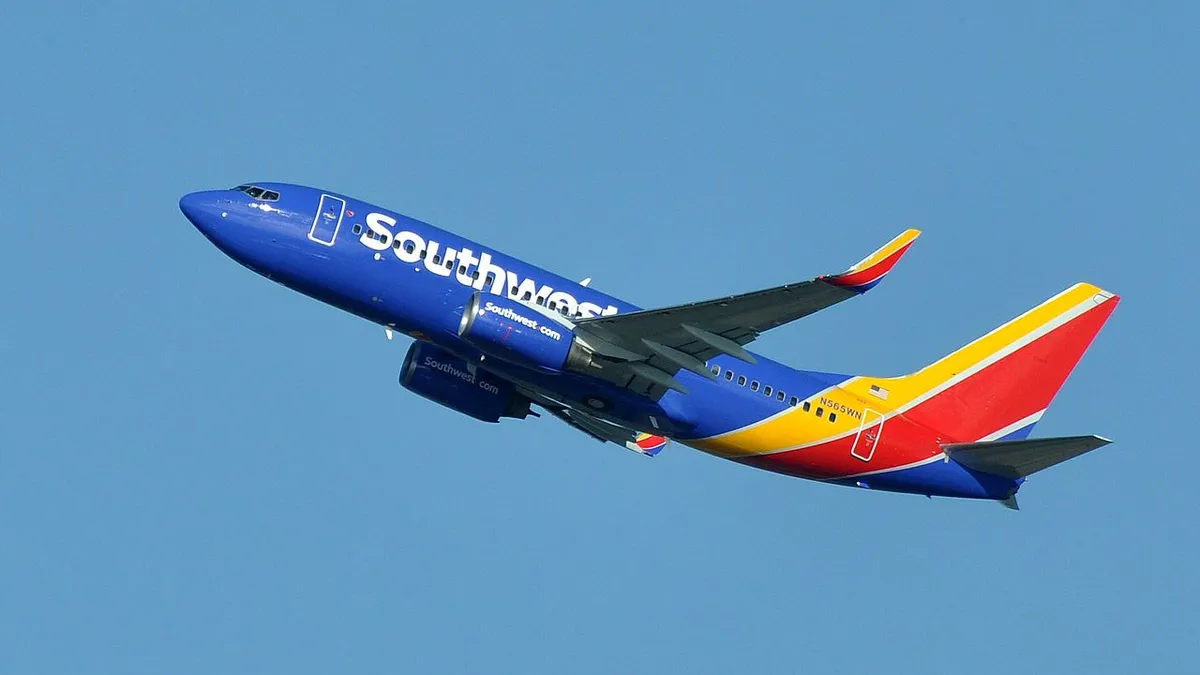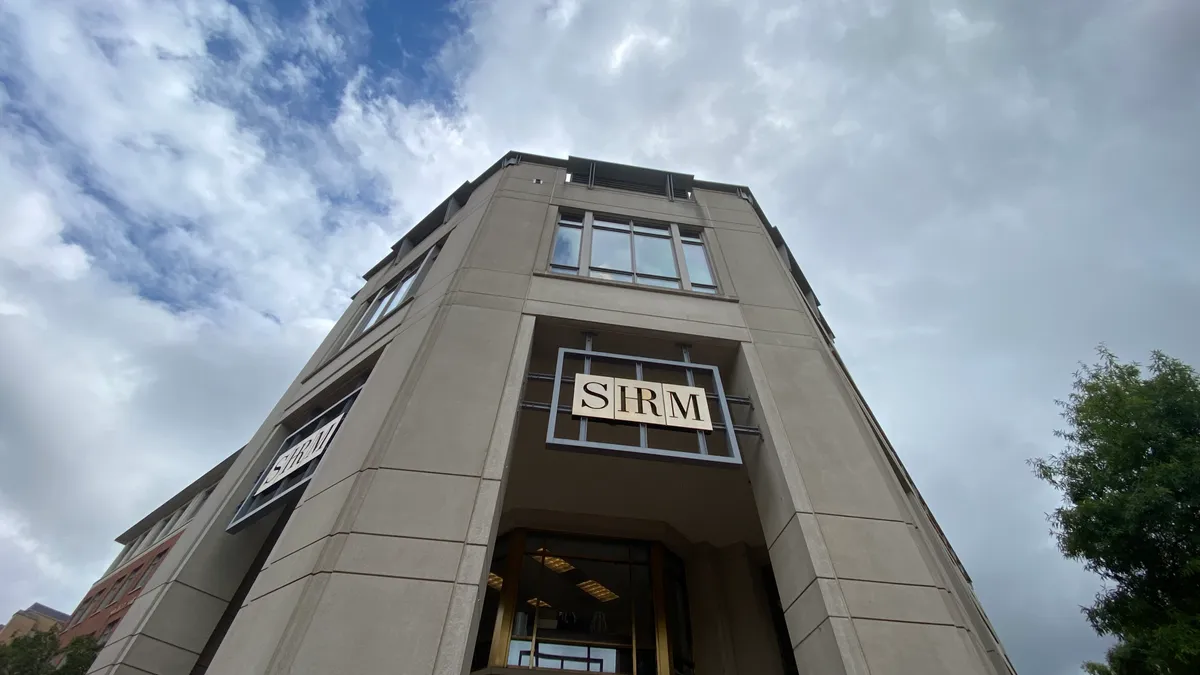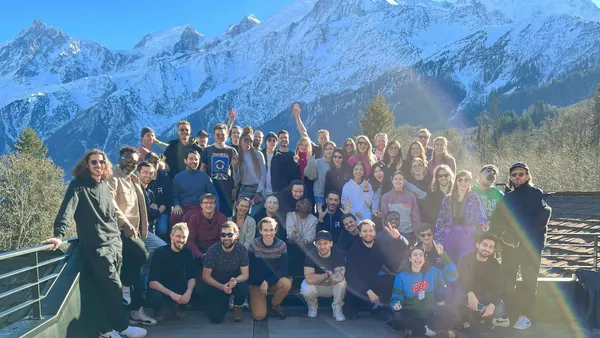Coinciding with the United Nations' "World Day against Trafficking in Persons," Southwest Airlines announced it will provide human trafficking awareness training to all 59,000 of its employees. The UN Office on Drugs and Crime has amassed information on the more than 200,000 victims of trafficking worldwide since 2003, and the UN designated July 30 as a day needed to "raise awareness of the situation of victims of human trafficking and for the promotion and protection of their rights" in 2013.
Southwest partnered with Polaris, a nonprofit that works to prevent human trafficking globally, to develop and provide a curriculum to team members. HR Dive asked Elizabeth Bryant, vice president of Southwest Airlines University, about the new program and the challenge of communicating such important information to the company's extensive workforce.
"As this is an issue prevalent in our industry, we've been discussing for some time the best way to approach it for our Customers and Employees," she wrote to HR Dive in an email, adding that finding the right partnership to undertake the task was easy for Southwest. "We've had an ongoing partnership with Polaris since 2016. As a leader in the global fight to eradicate modern slavery, we knew they were the perfect partner to help to create and offer this new awareness curriculum for Employees."
Polaris works with organizations to provide education about human trafficking, resources to help identify cases of the crime and to take action when necessary, she said. "They provided all of the information our training department needed to design a curriculum tailored to our Southwest Airlines Employees. Once we received the information from Polaris, the creation of the program took just over a month."
Southwest employees complete a series of modules, and at the end of the curriculum, the goal is for them to better understand what human trafficking is, be able to identify instances of it and be prepared to take action if necessary. The modules are available online, making it easy for all of the company's 59,000 employees to access the education from anywhere in the world, a press release said.
"While we haven't placed specific parameters around the curriculum," Bryant said, "we are working with Leaders from each workgroup to encourage their Employees and Leaders to complete the online course."
The response has been positive internally, she added. "Our employees have expressed their excitement about the additional resources and we've been pleased with the completion rate," Bryant said, noting that the training will be offered to all new hires after they're onboarded.
This isn't the first time Southwest has collaborated with Polaris and other agencies in the fight against human trafficking, Bryant said. The company provides monetary and ticket donations to Polaris, United Against Human Trafficking, an organization that provides education and outreach on the subject; and Rethreaded, another nonprofit that assists survivors of human trafficking with employment opportunities. "This support helps these organizations in fulfilling their valuable missions and making a positive impact in the lives of those affected by Human Trafficking," Bryant said.
Southwest has also partnered with Rethreaded for its worldwide sustainability initiative Repurpose with Purpose, Bryant said. Providing leather to the program, Southwest reduces the amount of waste it sends to landfills while helping support economic opportunities for individuals and communities who use the materials to create products sold online.
Polaris has partnered with other carriers on similar efforts, Bryant noted: "While the curriculum our training department developed is owned by Southwest Airlines, we hope that other carriers and companies will join the global effort to eradicate modern slavery. While we never shy away from friendly competition, this is an area where collaboration, information sharing, and a united effort are vital to really move the needle on this important issue."














